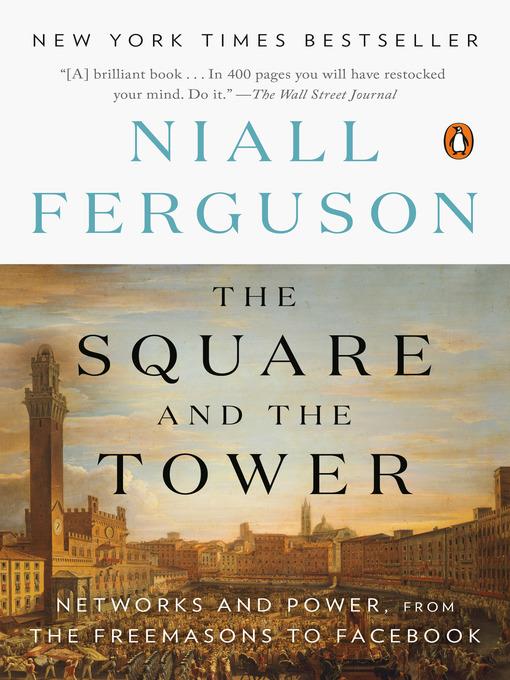
The Square and the Tower
Networks and Power, from the Freemasons to Facebook
کتاب های مرتبط
- اطلاعات
- نقد و بررسی
- دیدگاه کاربران
نقد و بررسی

September 1, 2017
Traditionally, history has come from the "tower," with ordinary folks in the "square" documented mainly through formal organizations such as guilds and trade unions. Multi-award-winning historian Ferguson argues that the fluid networks defining social media today have always existed (think ancient Roman cults, Freemasons, and revolutionaries) and can deliver a fresh understanding of history.
Copyright 2017 Library Journal, LLC Used with permission.

Starred review from October 23, 2017
Communications breakthroughs drive a centuries-long war between monolithic power and connected innovators in this sweeping conceptual history of the modern world. Historian Ferguson (The Ascent of Money) examines several turns in the ever-shifting relationship between entrenched hierarchies and upstart “networks”: the 15th-century invention of the printing press enabled Protestants
to challenge the Catholic Church and Enlightenment intellectuals and revolutionaries to overthrow monarchies; the advent of railroads, telegraphs, and radio allowed some bureaucratic states to become totalitarian dictatorships in the 20th century; the rise of the internet undermined hierarchical corporate and government control while empowering network monopolies such as Facebook. Ferguson’s episodic narrative explores these themes through vivid profiles of influential networks, from the 18th-century Illuminati (far more feckless than their conspiratorial reputation suggests) to the Rothschild banking empire, Cambridge University’s Apostles circle (an incubator of avant-garde literature, gay sex, and espionage), and Wikileaks. Ferguson’s occasional use of mathematical network-theory charts and jargon (“In terms of betweenness centrality, the king came first”) doesn’t add much to his analysis; still, his typically bold rethinking of historical currents, painted on the broadest canvas, offers many stimulating insights on the tense interplay between order, oppression, freedom, and anarchy. Photos.

November 1, 2017
Renowned economic historian Ferguson (Kissinger: 1923-1968: The Idealist, 2015, etc.) draws on insights from network theory to examine disruptions across time.Governments and other hierarchies are stable, suggests the author, building on insights by Henry Kissinger, to the extent that they are flexible in the face of changing conditions. So it was that, for instance, mid-19th-century Europe enjoyed several decades of unwonted peace, having reached a way of accommodating "the old hierarchies of hereditary rule and the new networks of globalization." As political stances became entrenched, with a unified Germany in constant opposition to France, the inflexibility reduced political and diplomatic maneuverability, and war followed. As Ferguson notes, networks have tended to disrupt hierarchy even though networks do not necessarily possess much power themselves. Writing about his own situation as a well-placed intellectual with affiliations to places like Harvard and Stanford, he notes that he doesn't even have the authority to decide who gets into his classes. What is more important is the structure of the network, with gatekeepers who, in essence, determine what information is admitted and what information is released--information that sometimes has revolutionary, hierarchy-breaking capabilities. Ferguson, a noted conservative, is refreshingly evenhanded. In discussing the viral qualities of conspiracy theory, for instance, it's clear that he regards conspiracymongers such as Alex Jones as noxious twerps while admitting, "this may be lunatic, but lunacy that appeals to more than a fringe." It is also clear that the author admires networkers more than hierarchs such as the current president--who, as he points out, insists, "characteristically," that his New York tower has 10 more floors than it really does. By the same token, Ferguson is scornful of hierarchs who use the tools of networkers ineptly, such as the data mavens who botched the Affordable Care Act computer systems.Making profitable use of information science, Ferguson offers a novel way of examining data that will be highly intriguing to students of history and current affairs.
COPYRIGHT(2017) Kirkus Reviews, ALL RIGHTS RESERVED.

























دیدگاه کاربران